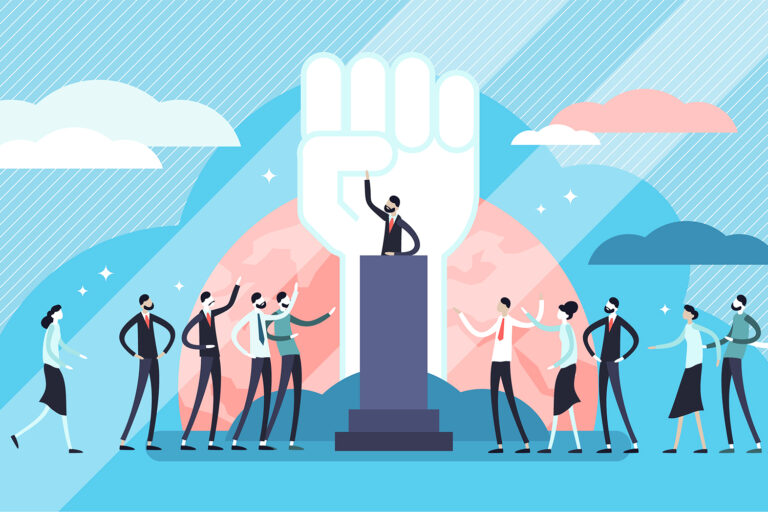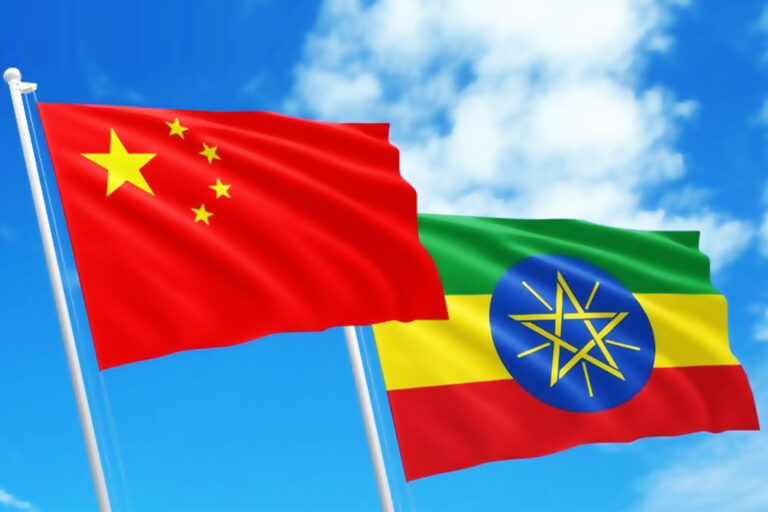The decisive victory of the New Zealand Labour politician, Jacinda Arden, in her country’s recent general election confirms a significant global political trend away from the nationalist anti-immigrant right. Prime Minister Jacinda Arden is the antithesis of President Donald Trump, Prime Minister Boris Johnson and other “loud-mouth” immigrant-bashing rightwing populists. She channels a desire for a more balanced politics which seeks to include. Her approach stands in stark contrast to the “exclude and divide” mantra, which is the right-wing populists’ way of generating voter support via hostility to minorities, foreigners and international rules.
Also consider Thailand, where young voters are demanding change to a more tolerant, inclusive politics and are evidently no longer afraid by the military regime. There is also outrage in Poland at the hyper-cynical way in which the populist nationalist government abuses its political might, as well as its unconstitutional moves to control the judicial branch, to suppress the right of women to decide on what terms they might give birth to a seriously ill, deformed baby.
Denis MacShane, former UK’s Minister and the author of “Brexiternity: The Uncertain Fate of Britain” stated that since Joe Biden, the last 1968 generation politician still standing for high office who, at least in an American context, is progressive, defeats President Donald Trump, the ill spirits of the 2016 election will be well and truly exorcised. Of course, a President Biden would be demonized by all Trump Republicans and cast as a left-wing politician. He receives that charge just because he is a believer in government and committed to international rules and institutions.
According to Denis MacShane, for the last decade, populists have been in the saddle in quite a few countries. And in some of them, notably in Brazil, India and Turkey, they still are. At the time, academic commentators issued dark alarms that a new illiberal, anti-immigrant, even post-democratic politics was about to take over.
In 2018, Professor Matthew Goodwin, of England’s Kent University, proclaimed that “National populism is unstoppable. His influential book “National Populism: The Revolt Against Liberal Democracy” was not alone. All over Europe and the United States, political scientists were sounding the tocsin for any balanced, values-based politics.
Ludger Kuhnhardt, Director of the Center for European Integration Studies (ZEI) at the University of Bonn, Germany stated that there was endless talk about Marine Le Pen in France, Matteo Salvini in Italy, Geert Wilders in the Netherlands, the Alternative für Deutschland (AfD) in Germany, Golden Dawn in Greece and the Austrian Freedom Party. To the extent that they did not implode on their own through scandals, the establishment parties have sharpened their game to ensure that they stand up more effectively to the lures of the right-wing populists.
In Germany, the AfD’s support has shrunk considerably. And in France, Marine Le Pen herself saw to it that hard right-wing and neo-fascist elements were thrown out of her party. The Austrian nationalist populists of the Freedom Party were thrashed by the Austrian socialists last month in a key election in Vienna to control their nation’s capital city.
According to Ludger Kuhnhardt, Matteo Salvini hoped to make a breakthrough in Italy’s regional elections last month but lost out badly to moderate left and centrist parties. Leaders of Greece’s Golden Dawn immigrant-hating nationalist populists are now in prison, after key figures in the party were convicted in an Athens court of promoting violence.
Sensible middle-of-the-road politicians govern in the EU’s three Nordic member states of Sweden, Denmark and Finland as prime ministers. They are all social democrats, but offer a balanced political approach. The pandemic has exposed the hollowness of both of the populists’ punchiest suggestions.
They argued that, nations were submerged by immigrants and, that by adopting 1930s-style orthodox fiscal economics and deregulation, the economies would do much better. The world has seen foreign immigrant doctors and nurses putting their lives on the line to look after patient in hospitals. This includes Britain, with care homes in nearly every country is completely dependent on immigrant workers.
The EU has stepped up to the plate with a massive Keynesian spending program to combat the pandemic’s economic effects. As a result, the line from Marine Le Pen and Geert Wilders that all would be well in France or the Netherlands if only the EU did not exist has fewer and fewer adherents. Even in Britain, only 39% of those polled any longer think cutting links with Europe is a good idea.
To conclude, a defeat for President Trump will bury the populists’ spirit of 2016. Even if he wins a 2nd term, the good news is that the era of hard populism is fading. The political scientists and commentariat will have to put their thinking caps on to define the new politics.
The demise for right-wing populism
Partners working together for a shared prosperous future
The Foreign Ministers of the People’s Republic of China and the Federal Democratic Republic of Ethiopia, on the occasion of the 50th anniversary of the commencement of the diplomatic relations between the two countries, co-authored this article to mark the bilateral friendship and trust built over the past five decades between the two countries.
On Nov 24th, 1970, China and Ethiopia officially established diplomatic relations at the ambassadorial level, which brought the two ancient civilizations closer together. Similar historical experience and shared development aspiration have forged a strong bond between the two countries in the joint pursuit of progress. Despite changes in the world over the past 50 years, the two countries have always treated each other as equals and with respect, steadfastly supported each other’s exploration of development path suited to its national conditions, understood and supported their respective core interests and major concerns and have jointly upheld multilateralism and fairness and justice. As comprehensive strategic cooperative partners, the two countries have developed relations across the board with growing strategic importance. Today, China-Ethiopia relations are stronger than ever.
The two countries have been continuously deepening political mutual trust. In recent years, the leaders of the two countries have been engaging in frequent interactions. President Xi Jinping and Prime Minister Abiy Ahmed Ali have maintained close communication through two official meetings, multiple telephone calls, video conferences and correspondence. Prime Minister Abiy Ahmed Ali visited China during the Beijing Summit of the Forum on China-Africa Cooperation (FOCAC) in 2018 and the second Belt and Road Forum for International Cooperation in 2019. In the early period, His Majesty Emperor Haile Selassie visited China and met with Chairman Mao Zedong. Previous Prime Ministers of the Federal Democratic Republic of Ethiopia also maintained regular, continuous and increasingly closer contact with the Chinese leadership. Such frequent engagements at the highest level have charted the course for the bilateral relationship. As developing countries that have similar positions on tackling challenges in the globalized era such as climate change, poverty reduction, and regional conflicts, the two countries have always been in close communication and collaboration at the UN and other international organizations, and effectively safeguarded the shared interests of developing countries.
The two countries have achieved fruitful results in cooperation across the board. China is Ethiopia’s largest trading partner, source of investment, and development partner. From 2000 to 2019, the two-way trade volume has increased by over 26 times. Ethiopian coffee and flower are widely popular in the Chinese market. Sesame import from Ethiopia accounts for over one-tenth of consumption in China. Chinese companies have put into operation or under construction over 1, 500 projects with a total investment exceeding 1.153 billion US dollars, creating more than 60, 000 local jobs. Ethiopia is among the first African countries to sign Belt and Road cooperation agreement with China. The Addis Ababa-Djibouti Railway is one of the flagship projects of the Belt and Road cooperation between China and Africa. Roads, airports, industrial zones, power facilities and other infrastructure built through the partnership have injected strong impetus into Ethiopia’s sustainable development. In 2019, with Chinese assistance, Ethiopia launched its first Remote Sensing Satellite (ETRSS-1) for earth observation, which unveiled a new chapter in the bilateral scientific and technological cooperation. Chinese tourists have contributed a fair share to the growth of Ethiopia’s travel and tourism industry. Ethiopian Airlines has more air links with China than any other African airlines, which serves as an essential air bridge that facilitates people-to-people exchanges and cargo trade between China and Africa. The political commitment of the two countries’ leadership, sound policies and the “going global” outlook of Chinese financial institutions and enterprises have immensely contributed to the win-win results gained in all sectors.
The two countries, each with their time-honored civilizations, are coming closer in mutual learning. Cooperation in culture, education, health, and tourism continues to grow. Confucius Institutes, medical teams, students, volunteers, and sister cities have become major driving forces for deepening the friendship between the two peoples. The Addis Ababa riverside green development project, which was implemented with China’s support, has added to the beauty of the city in its endeavor to become a popular tourist destination. An increasing number of Ethiopian athletes are coming to China for international competitions. The Saga of the ancient Ethiopian culture is told in more and more Chinese households. Likewise, Chinese kung fu is becoming more popular among Ethiopian youth.
China and Ethiopia have carried out successful cooperation against COVID-19. President Sahle-Work Zewde and Prime Minister Abiy Ahmed Ali sent letters of sympathies to President Xi Jinping. Prime Minister Abiy Ahmed Ali had a telephone call with President Xi Jinping to reaffirm Ethiopia’s strong solidarity and support to China’s efforts to combat the pandemic. Ethiopian Airlines demonstrated its commitment by continuing all flights to and from China during the coronavirus outbreak and has played its key role in the transshipments of anti-COVID-19 supplies across Africa and the globe. The Chinese government at the central and local levels, as well as organizations from different sectors have delivered a large number of supplies to Ethiopia since the outbreak of the coronavirus. Ethiopia is the destination for one of the first Chinese medical expert teams to Africa. Chinese experts have shared lessons and experiences unreservedly through video conferences. A Chinese company has also contributed to the anti-COVID-19 fight by putting into operation a test-kit factory in Ethiopia. In the meantime, the two countries have worked together to give other African countries support and assistance and played a crucial role in the continent’s fight against the pandemic. Such cooperation has set an excellent example of China-Africa solidarity in the time of COVID-19.
China is now striving to realize its two centenary goals and the Chinese dream of national renewal. Ethiopia is making every effort to implement home-grown economic reform and “Ethiopia: an African Beacon of Prosperity” a ten-year economic development plan. The two countries enjoy high complementarity in development and broad prospects for cooperation.
From a new starting point, China and Ethiopia will work together to deliver on the results of the FOCAC Beijing Summit, strengthen Belt and Road cooperation, and step up efforts as follows: enhance high-level interactions and strengthen strategic planning for cooperation so that the bilateral relations will be steadily steered with top-level design; consolidate the basis for cooperation and further explore its potential by producing more economic and social benefits of infrastructure, industrial zones, modern agriculture, innovation and technology as well as tourism and energy cooperation projects, so that China-Ethiopia cooperation will be elevated and become an example in China-Africa Belt and Road cooperation; promote people-to-people exchanges by expanding cooperation in health, culture, education and tourism so that the friendship between China and Ethiopia will have greater support from the two peoples; and intensify coordination and collaboration in international and regional affairs to uphold the central role of the United Nations, basic norms governing international relations, multilateralism, and fairness and justice, and jointly tackle global challenges.
Half a century on, China-Ethiopia relations are now facing new historic opportunities for development. Under the new conditions, China and Ethiopia will work together to continuously deepen cooperation in all areas, strive for more achievements of the comprehensive strategic cooperative partnership, and create an even better future for the two countries and peoples.
Wang Yi is state councilor and foreign minister of the People’s Republic of China, and Demeke Mekonnen Hassen is Deputy Prime Minister and Foreign Minister of the Federal Democratic Republic of Ethiopia.
Ethiopian arts festival Sigdiada endures online
Sigdiada started in 2012, and this year it marks its ninth edition.
“I chose not to be a priest, I chose to be an actor,” said Shay Pardo, an Ethiopian-born performer who founded and runs Sigdiada, a celebration of Ethiopian art and life, which took place from November 26 to 28 at Habimah Theater, but without an audience, due to the pandemic.
Pardo was born in Ethiopia to a family of kessim (spiritual leaders of the Ethiopian Jewish community), and said, “My grandfather was the kohen of kohanim.”
Choosing to become an entertainer instead, Pardo has founded and run several theater companies, including Natale Theater. He has also written and performed a one-man show, Gur Aryeh Yehuda, and appeared in classical theater, including Shakespeare and Chekhov at theaters such as the Khan in Jerusalem, as well as appearing in a number of films and television shows.
But while he isn’t a priest, he sees himself as following in the spirit of his grandfather.
For Pardo, it’s important to present a festival celebrating Ethiopian culture following the Sigd holiday, an Ethiopian religious holiday that has become a national holiday in Israel, and equally important that it be presented at Habimah, Israel’s national theater.
Sigdiada started in 2012, and this year it marks its ninth edition. Pardo convinced the Habimah management that audiences would turn out in large numbers for the festival.
“I wanted it to be in the mainstream of culture, in Habimah,” he explained.
He was inspired by the Apollo Theater in New York City, which presents African-American music and theater.
“It’s in Manhattan, in the heart of New York,” he said.
“I knew that it would have to be high-quality, with the best professionals,” he said. “I don’t like culture that is done in community centers, with no professionals…. There is a lot of talent in the Ethiopian community. The performers had never been given the opportunity before to shine in such a venue before.”
While he acknowledged that most Israelis of Ethiopian descent live in the periphery, he insisted that the mainstream would embrace Sigdiada, and it has.
“About 30% of those who attend are Ethiopian,” he said. “But others came and said, ‘Ethiopian culture isn’t what we thought it was. It’s on an international level.’”
Performers such as Tzvika Adar, Ehud Banai and Koby Oz collaborated on the festival in past years and helped put Sigdiada on the cultural map.
The festival features music, dance and theater, with many performances geared for the whole family. This year there will be a special emphasis on dance, and there will be interactive performances where dancers will teach viewers at home nine styles of Ethiopian dance.
Among the highlights of this year’s festival will be Avera, a musical with Pardo about the journey of a child in an Ethiopian village who leaves and returns at the age of 90 to draw the views that shaped his life. It is based on a book and an exhibit at the Israel Museum. Another performance will feature Ethiopian piyutim, or liturgical poems of devotion.
There will be lectures on aspects of Ethiopian culture by a number of academics, including Prof. Edwin Seroussi, a musicologist, and Dr. Rose Brown. Among those taking part in panel discussions will be Aliyah and Integration Minister Pnina Tamano-Shata.
Normally, the festival would include Ethiopian food and crafts at the theater, but that will have to wait until next year. So will the addition of another city. But Pardo is sure that the festival will provide a welcome distraction from the stress of the coronavirus crisis.
Sigdiada is changing the way Ethiopians are perceived in Israel, Pardo said. “It’s like when someone goes to see a beautiful view and he gets there and he likes it. But if he goes on for another five or 10 minutes, he will see a different view.”
(The Jerusalem Post)
Journalists have to be seekers of truth, not activists
Ask a group of young journalists, be it in Nairobi, Kenya or in the German port city of Hamburg, known for its abundance of media houses, why they chose a profession that pays badly and puts them in the firing line, and the majority will respond: that they want to make the world a better place.
There’s nothing wrong with that. We all want less armed conflict, tribal tension, hunger, populism and corruption. The decisive question is how one defines one’s own role in the media: whether one lets oneself be driven by one’s political or religious convictions, or by the search for truth. There is also the urge to offer direction in a world that seems to be spiralling out of control faster every day.
The pandemic has shown the importance of having an ethical compass as a journalist. And Covid-19 has underlined the importance of verifying news from different sources, of checking the “facts”. It has demonstrated how important it is to be a journalist who knows what she is talking about. You may be a good anchor, but can’t necessarily explain a flu in a comprehensive manner. Or one may be a good health journalist, whose salary is being funded by an American philanthropist, who sees journalism only as a tool for fighting Malaria and Ebola. But unless journalism is holistic and includes aspects such as politics and business, even the best health journalism won’t cut the mustard in the long run.
The reading and listening public might be unaware that journalists who take their work seriously have to make choices all the time. They have to decide day in and day out which news to put on the front page, which lead to follow and how to comment on a political development. Ideally they ask themselves on a daily basis if they were just reflecting the opinions of the people they wrote about or if they followed first of all their convictions.
Journalists are no better human beings than the rest of us, but they carry a bigger responsibility than others. Their reports can influence opinions and even elections; they can raise tensions and cause havoc. Their choices often affect people’s lives in an existential manner.
There was for instance a German reporter who covered the killings in Rwanda during the genocide. As he drove slowly into the lush hills near the Congolese border, against a stream of people fleeing in a cloud that reeked of fear and death, a man held his tiny baby through the open car window and begged the reporter to save his child. The journalist couldn’t and didn’t. Not only was he moving towards the epicenter of the carnage, from which the child had to be protected, he also had to report on the killings still taking place. Through his reporting on German Public Radio hundreds of thousands of peoples heard the story unfolding.
Certainly any journalist should ideally have compassion and empathy. And the German reporter still wonders today what became out of that baby, which must be in its mid-twenties by now — that is, if it survived.
The chief executive of Axel Springer publishing house, Mathias Doepfner, a former journalist himself, recently accused many media people of being driven by their subjective preferences, rather than by the search for truth. He said if journalism couldn’t be differentiated from activism anymore, this demarcates its end.
What Doepfner describes can be adapted to anywhere in the world. We are witnessing more and more journalism that only reacts to events, rather than journalism that reflects, journalism that initiates debates. Increasingly, journalism tends to confirm the supposed opinions of its readers, viewers and listeners. There is a growing culture of impunity among media people, as the attitude prevails that the nonsense they write today will probably be forgotten tomorrow. You find these kinds of journalists in Europe and in Africa, and there are surely many examples elsewhere. This culture not only undermines the credibility of journalism, it affects societies that need critical media, where uneasy questions are asked and alternatives to the status quo are discussed.
Of course there are those journalists, according to media entrepreneurs in the DRC and in Ethiopia, who chose journalism because they want to become famous and they have pretty faces. An Ethiopian publisher friend says he doesn’t hire from journalism schools in his country; he prefers young people who have seen and experienced real life. There is, for instance, a young Ethiopian woman who was previously a lawyer but she chose to become a reporter, as she discovered that justice can also be achieved outside of the courtroom.
In Southern Africa, we witness developments that make one wonder if journalists have lost their way. When writers who call themselves investigative journalists go through the rubbish bins of political leaders whom they dislike, and discover used condoms and champagne bottles, the question arises: so what? Doesn’t this say more about the writer than the person who disposed of those items in the rubbish bin?
Yet, there are impressive examples on the African continent, where, despite repression, media houses stick to their journalistic beliefs of impartiality. The Premium Times in Nigeria reported the killings of peaceful Anti-SARS (Special Anti-Robbery Squad) protesters in a matter-of-fact way, without showing any signs of rage. And on the other side of the continent, the Swahili website JamiiForums in Tanzania covered the (rigged) elections of late October accurately and calmly, giving voice to the incumbent as well as the opposition, reporting the arrests of MPs and others in a responsible manner, no matter what the author might have felt himself.
Good and credible journalism cannot be propaganda. And journalists cannot be activists, no matter how noble the cause they feel for may be. Should credible journalism survive, the activists out there — in newsrooms and on TV screens — have to stop pretending that they are reporters working for the common good.
Christoph Plate is the director of media programmes for sub-Saharan Africa at the Konrad-Adenauer-Stiftung






